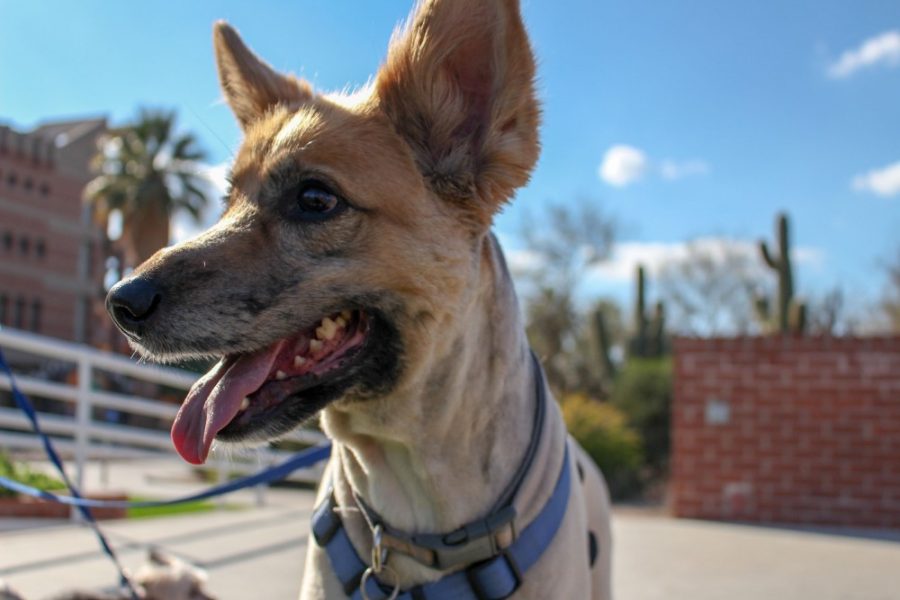Man’s best friend may also be man’s best research subject, as a study by a University of Arizona researcher suggested that personality traits in dogs may be the result of genetic inheritance.
UA professor of anthropology and psychology Evan MacLean recently published a report n how dogs’ personality traits relate to their DNA.
In this study MacLean worked alongside fellow professors Noah Snyder-Mackler of the University of Washington, Bridgett M. vonHoldt of Princeton University and James A. Serpell of the University of Pennsylvania.
“Across 14 traits, we found that breed differences in behavior are highly heritable, and that clustering of breeds based on behavior accurately recapitulates genetic relationships,” MacLean said in an email interview.
RELATED: The hormones that may be making your dogs aggressive
Dogs were chosen as test subjects for the study due to their “simplified genetic architecture” as a result of the selective breeding used to develop different dog breeds, according to the report titled “Highly Heritable and Functionally Relevant Breed Difference in Dog Behavior.”
“In addition to these practical advantages, dogs exhibit complex cognitive and behavioral phenotypes, with striking parallels to traits in humans,” the report stated.
Approximately 100 dog breeds were used in this study, including Greyhounds, Akitas, Chow Chows and Siberian Huskies. Over 17,000 dogs were studied in total.
“We identify 131 single nucleotide polymorphisms associated with breed differences in behavior, which are found in genes that are highly expressed in the brain and enriched for neurobiological functions and developmental processes,” the report stated.
The results and methodology were a complicated process.
According to the report, MacLean and his team first estimated the genetic relationships among breeds by using identity-by-state matrices generated in PLINK, an open source tool for “whole-genome association and population based on linkage analyses.”
They also used behavioral data from the Canine Behavioral Assessment and Research Questionnaire, meaning the data was collected by surveying humans about their dog’s personality traits.
Many other methods and materials were also used, including heritability analyses, clustering and the Genome-wide association study, where they identified single nucleotide polymorphisms that exhibited a connection with each trait.
MacLean and his fellow researchers discovered during the study that certain traits were significantly more reliant on DNA than others.
MacLean stated that the traits with the most genetic influence were stranger-directed aggression, trainability, as well as attachment and attention-seeking. Traits that were found to have the least genetic influence were fear and excitability.
RELATED: Dogs and toddlers possess similar emotional intelligence
These findings contain information that could prove to be beneficial to humans.
MacLean said that these findings may be able to help uncover genes related to similar behavioral traits in humans. MacLean also added that it could become possible that certain genetic variants, based on desirability, could be chosen for dogs through selective breeding and cultivation.
These results produced pathways that will allow for further research that could be potentially groundbreaking in the field of genetics.
With this new information collected, MacLean and his fellow researchers have hopes of conducting another study.
“This work was done at the breed-average level, but in the future we hope to conduct similar work where we can collect both behavioral and genetic data from the same dogs,” MacLean said in an email interview.
Follow Connor Fries on Twitter















